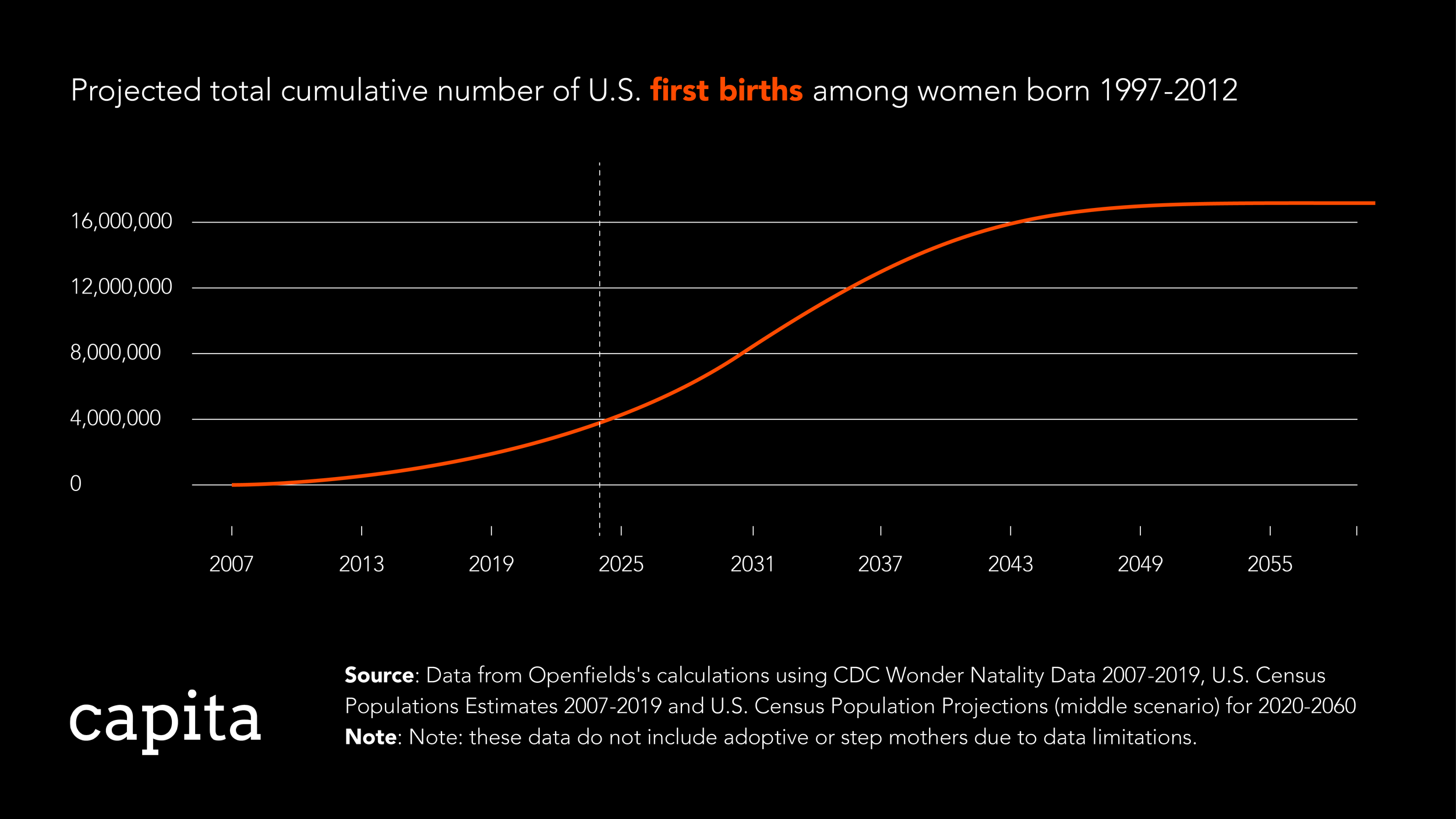Gen Z parents: growing in numbers, but limited in political clout
Idea in Brief
Members of Gen Z are increasingly becoming parents. 2032 is projected to be the year in which the largest number of Gen Z mothers will give birth in the US for the first time: 770,000.
Yet broader demographic trends mean that Gen Z parents will represent a small sliver of the American population in their peak parenting years.
As a result, Gen Z parents will likely get less support and hold less political power than older generations.
By Joe Waters
Photo by Sergiu Vălenaș on Unsplash
A transformation in parenting is underway. Members of Generation Z (generally defined as people born 1997-2012) are entering adulthood, graduating from college, joining the workforce, and starting families. Gen Z differs in significant ways from the Millenials who preceded them. In recent years, Capita has been exploring the implications of this transformation.
As we have shown, members of Gen Z are true digital natives. They are pro-government, progressive, and committed to social justice. They are the most educated and racially diverse generation. They are more likely to identify as LGBTQ+ and comfortable with gender fluidity.
Our research has focused primarily on young people in the United States, but young people across much of the Global North appear to share these characteristics. You can read more of our analysis of Gen Z.
We now have more information on when members of Gen Z are likely to have children. Our partners at Openfields have put together data (based on CDC natality data and US Census population projections) that predicts that most Gen Z mothers in the US will have their first child between 2020 and 2045.
Yet Gen Z parents, despite their numbers, may have limited political influence. As US Census Bureau analysts have written, “the year 2030 marks a demographic turning point for the United States.” By the end of that decade, older adults will outnumber children under 18 for the first time in US history and therefore become the dominant and most influential segment of society. Gen Z on the other hand, will be a smaller proportion of the overall population than previous generations of parents. By 2060, there will be 17 million Gen Z mothers, but they will only represent slightly more than 4% of the US population. Even when you add their partners, Gen Z parents will represent less than 10% of the total population.
Policy makers, corporations, and public services always adjust to meet the needs and expectations of new generations of parents. But these demographic shifts may dilute the power of Gen Z parents to press for these changes. Systems and institutions that serve families will compete for resources as they serve a shrinking constituency. As older Americans with older teenage and adult children dominate politics, young parents will have less political power to drive reform on issues like climate change and child care.
“In short: Gen Z parents will receive less support and have less political power than older generations.”
We had a preview of the policy implications of these trends during discussions about President Biden’s Build Back Better agenda. While voters generally supported the agenda, the investments in children were about half as popular as investments in long-term care and expanding Medicare to include hearing aid coverage.
As a generation, Gen Z faces a multitude of challenges against the backdrop of national and global crises. And we can only expect future policy debates to further marginalize the needs of families with young children. But if we are to ensure that the needs of young children are strongly represented in our political discourse, we will have to find additional ways to do that other than relying on their parents acting as their proxies. Among the mechanisms for such representation are citizens assemblies, Future Generations Commissioners, and Japan’s future design movement. Greater representation brings the voices of children and young people to the heart of our societal decision-making. And it can help us ensure future generations a flourishing future despite the low political clout of young parents and caregivers.


